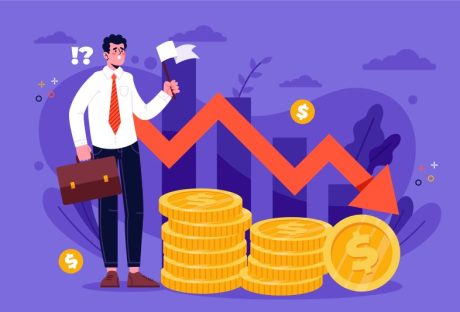In the rapidly evolving business environment, automation has emerged as a transformative force, reshaping various operational aspects, including payroll and compliance processes. This technological advancement has significantly impacted how businesses manage their financial obligations and adhere to regulatory standards, much like workforce management systems have revolutionized employee scheduling and task allocation. Automation in payroll and compliance offers many benefits, ranging from enhanced accuracy to improved efficiency. This article dives into the impact of automation on these critical business functions, shedding light on its benefits and the future it heralds for organizations.
Streamlining Payroll Processing
The advent of automation in payroll processing has revolutionized the way businesses approach this critical function. Beyond merely automating calculations, sophisticated software solutions offer integrated time tracking, direct deposit setups, and even mobile access for on-the-go management. This ensures that every aspect of payroll—from initial hours worked to final payment—is handled precisely and efficiently.
Automated systems adeptly manage varying tax rates and legal requirements for businesses operating across different states or countries, ensuring compliance and accuracy regardless of geographic complexities. The result is a streamlined process that saves time and significantly reduces the administrative burden on staff, allowing businesses to allocate resources to areas that drive growth and innovation.
Enhancing Accuracy And Reducing Errors
Automated payroll systems have become invaluable in enhancing the accuracy of financial transactions and reducing errors. By removing manual data entry, the risk of human error significantly decreases, leading to more reliable payroll outcomes. These systems are designed to automatically update in response to changes in tax laws, employee benefits, and other variables, ensuring that every payment is calculated based on the most current information.
Furthermore, they offer detailed records and reports that can be quickly reviewed and audited, providing additional oversight. This meticulous approach to payroll not only safeguards against compliance issues but also builds trust among employees, who can be confident in the accuracy and reliability of their paychecks.
Improving Compliance With Regulatory Changes
The dynamic nature of tax laws and employment regulations makes compliance a moving target for many businesses. Automated payroll systems are equipped to handle these changes seamlessly by incorporating updates directly into their calculations and reporting features. This automation ensures that businesses remain compliant without needing to monitor and adjust to new regulations manually.
It also provides a significant advantage in risk management, as the system can alert businesses to potential compliance issues before they become problematic. By leveraging automation, companies can navigate the complex regulatory compliance landscape more quickly and confidently, minimizing exposure to penalties and legal issues.
Enhancing Employee Self-Service Capabilities
Implementing employee self-service capabilities through automation has transformed the employee experience regarding payroll and benefits management. These platforms empower employees to take charge of their personal information, view detailed pay histories, and access year-end tax documents independently. This level of transparency and control is a convenience for employees and fosters a sense of empowerment and engagement. Additionally, by decentralizing these tasks, HR departments are relieved of routine inquiries, allowing them to concentrate on strategic initiatives that contribute to the company’s culture and growth. This shift improves operational efficiency and enhances the overall workplace environment by promoting a culture of transparency and self-sufficiency.
Facilitating Data-Driven Decision Making
In payroll and compliance, automation provides more than just operational efficiencies; it offers strategic insights. The data collected and analyzed by automated systems can inform various business decisions, from budgeting and financial planning to workforce development strategies. This wealth of data enables companies to identify trends, such as overtime usage or departmental labor costs, allowing for more informed decision-making. By knowing the financial implications of these trends, businesses can optimize their operations, forecast future costs more accurately, and strategically plan for growth. This level of analysis was previously unattainable with manual processes, highlighting how automation not only streamlines administrative tasks but also provides a strategic advantage.
Prioritising Cybersecurity In Automated Systems
An additional point to consider in the context of automation in payroll and compliance is the critical importance of prioritizing cybersecurity. As businesses rely increasingly on digital platforms to manage sensitive employee information and financial data, the potential for cyber threats grows. Implementing robust security measures, including encryption, multi-factor authentication, and regular security audits, is essential to protect this data from breaches.
Furthermore, educating employees about cybersecurity best practices can help mitigate risks associated with phishing scams and other digital threats. By prioritizing cybersecurity within automated payroll and compliance systems, businesses can safeguard their data, protect their employees’ information, and maintain the integrity of their financial operations in the digital age.
Conclusion
In conclusion, the impact of automation on payroll and compliance is profound, offering businesses the opportunity to streamline processes, enhance accuracy, improve regulatory compliance, empower employees, and make informed decisions. As technology advances,
automation will likely play an increasingly central role in these areas, much like workforce management systems have become integral to managing modern workplaces. The benefits of automation in payroll and compliance are clear, promising a future where businesses can operate more efficiently, accurately, and compliantly, ultimately contributing to their overall success and sustainability.


























All Comments
real reviews of GlucoRelief
I appreciate you sharing this blog post. Thanks Again. Cool.